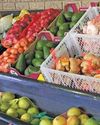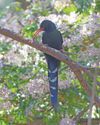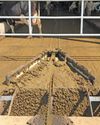
Sheep shearing is the process of cutting off the woollen fleece of a sheep. According to British Wool, sheep shearing is a skilled profession “which should only
be carried out by professionals who have been trained to shear carefully and sympathetically”.
There are various reasons why farmers shear their sheep. Of course, the most obvious reason for this is wool harvesting: collecting wool for the purposes of selling.
But there are also other reasons that sheep may be shorn. One of these relates to animal welfare. According to British Wool: “Sheep grow wool continuously to protect them from the weather. Wool is a natural product of the sheep’s life cycle and the welfare of sheep is improved by them being shorn every 12 months. Shearing keeps sheep cool in the warmer months and reduces the risk of parasitic infestation and disease.
“It also reduces the risk of sheep becoming ‘rigged’ or stuck on their backs, which can make them vulnerable to attack by crows or other predators.”
It adds that the risk of insect infestation can be lowered with frequent shearing. “Sheep are particularly susceptible to insect infestations like flystrike because of their thick fleece. If parts of their fleece become sufficiently contaminated with dirt and fluids, which can easily happen when grazing freely in the fields, this can attract flies, which lay their eggs in the fleece. After hatching, the maggots bury themselves in the sheep’s wool and eventually under its skin, feeding off their flesh. Removing the fleece considerably reduces the risk of diseases of this nature because it removes a potential breeding ground for insects.”
This story is from the June 07, 2024 edition of Farmer's Weekly.
Start your 7-day Magzter GOLD free trial to access thousands of curated premium stories, and 9,000+ magazines and newspapers.
Already a subscriber ? Sign In
This story is from the June 07, 2024 edition of Farmer's Weekly.
Start your 7-day Magzter GOLD free trial to access thousands of curated premium stories, and 9,000+ magazines and newspapers.
Already a subscriber? Sign In

Agripreneur wins top award for butternut coffee
Bloemfontein-based agripreneur Chantelle de Bruyn has achieved global recognition.

Final fresh produce inquiry pins low level of transformation on farming environment
The Competition Commission released its final report on the Fresh Produce Market Inquiry in mid-January, maintaining that transformation in the industry was being impeded by a lack of support for emerging farmers.

Illegal fishing in Australia reveals market gap for farmed sea cucumber
Illegal fishing practices in Australia have revealed a large market opportunity for sea cucumber farming.

An introduction to the Ford Ranger Tremor
In December 2024, the CAR magazine team received the Ford Ranger Tremor to accompany them through the festive season and into the new year. Oliver Keohane looks at what the Tremor is all about.

A farmer's experience with bush encroachment
Farmer David Addenbrooke has worked in the Zimbabwean beef industry for around four decades. Here, he relates his experience with bush encroachment and offers farmers some advice on battling this scourge.

Good rains boost SA's summer grain crop prospects
This week, Absa AgriBusiness analyses several market dynamics and shares its expectations for local grain and oilseed prices over the coming months.

A self-help tool for getting young people engaged in agriculture
The active engagement of the youth in agriculture is pivotal to the sustainability and growth of the sector. Empowering them with the necessary support is key to nurturing future farmers who are equipped to overcome future challenges like the effects of climate change.Dr Primrose Madende, researcher at the Department of Agricultural Economics at the University of the Free State

Rallying to the cackle of this raucous bird
The gregarious and territorial Green Wood-hoopoe, also known as the Red-billed Wood-hoopoe, is extremely vocal and is often heard before it is seen. And for very good reason,

SA coffee lovers can expect price increase
South African coffee prices are expected to spike sharply in the foreseeable future because of failed crops in the country’s main importing countries: Brazil and Vietnam.

Paving the way for a greener dairy industry
The dairy industry is often criticised for its environmental impact, but a new innovation called DESTiny aims to empower farmers to take control of their carbon footprints. Riana Reinecke, the tool's developer, explained to Glenneis Kriel how it works and how farmers can benefit from it.